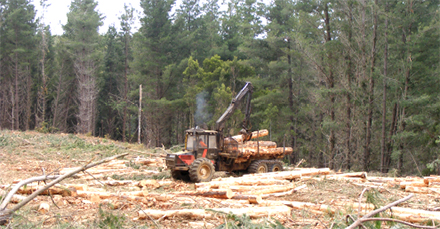Earlier this year, the Australian Government confirmed that it will make climate-related disclosures mandatory for large businesses and financial institutions. In June 2023, the Commonwealth Treasury proposed a design for a mandatory climate reporting framework. The framework is to be based on the International Sustainability Standards Board’s climate standard, IFRS S2 – Climate-Related Disclosures.
It is proposed that climate-related disclosures be incorporated into the Annual Report and be linked to, and integrated with, the financial statements. An organisation will be mandated to make a climate-related disclosure based on criteria that include number of employees, gross assets, and revenue. The criteria assign an organisation to one of three groups with the largest entities and emitters required to begin reporting as of 1 July 2024. Other organisations are then phased in over financial years commencing 1 July 2026 and 1 July 2027.
IFRS S2 incorporates and builds on the framework of the Task Force for Climate-related Disclosures (TCFD) but requires more granular and quantitative disclosures of the current and anticipated financial effects of climate change over the short, medium and long term.
Margules Groome has given a general introduction to TCFD in a previous article. The TCFD framework includes four thematic areas, being governance, strategy, risk management, and metrics and targets. Disclosures need to cover:
How the organisation’s governing body is taking responsibility for climate-related risks and opportunities and how the board is providing oversight.
The scenario analysis undertaken by the entity to identify climate-related risks and opportunities and quantify their potential impact under three different climate scenarios (1.5 degrees Celsius climate scenario, 3 degrees Celsius climate scenario plus one additional scenario).
A description of how transitional and physical climate-related risks are being integrated into the entity’s overall risk management processes.
Cross-industry metrics for greenhouse gas (GHG) emissions and removals as well as any other performance indicators and targets used to measure and manage climate-related risks and opportunities.
IFRS S2 requires organisations to disclose climate-related risks and opportunities throughout their value chain. This means that organisations which are not ‘within scope’ of the mandatory climate reporting will still likely be subject to information requests from those that are.
Many organisations which are not captured by mandatory climate reporting may choose to voluntarily disclose to attract capital at a time when investors and lenders are focusing on managing climate risk in their investment portfolios.
Forest growers considering compliance with IFRS S2 will need to quantify what potential impact climate-related risks and opportunities may have on their tree crop values, as reported under IAS 41 Agriculture. This should include consideration of acute physical risks and opportunities (for example wildfires, windstorms or cyclones) and chronic physical risks and opportunities (for example higher atmospheric concentrations of carbon dioxide, changes in rainfall patterns, temperature, pest and disease and droughts). The impacts of climate change on the highest and best use (HBU) of land will need to be considered.
All reporting organisations are required to disclose their scope 1, 2 and 3 emissions. Internal carbon price assumptions also need to be disclosed.
Forest processors will need to keep abreast of grower disclosures in assessing and disclosing their own risks and opportunities.
Both growers and processors should be proactive to determine the actions that will be required in working towards compliance with IFRS S2. This should include consideration of climate governance structures, the board and management’s level of climate competency, and the data and systems needed for climate reporting.
Successful growers and processors will approach climate reporting as a strategic opportunity to demonstrate the value and resilience of their organisation rather than a compliance ‘tick box’ exercise.
Margules Groome are independent consultants to the forestry, wood products, bio solutions, pulp & paper, and agriculture sectors and can assist in preparing for Climate-Related Financial Disclosures.






